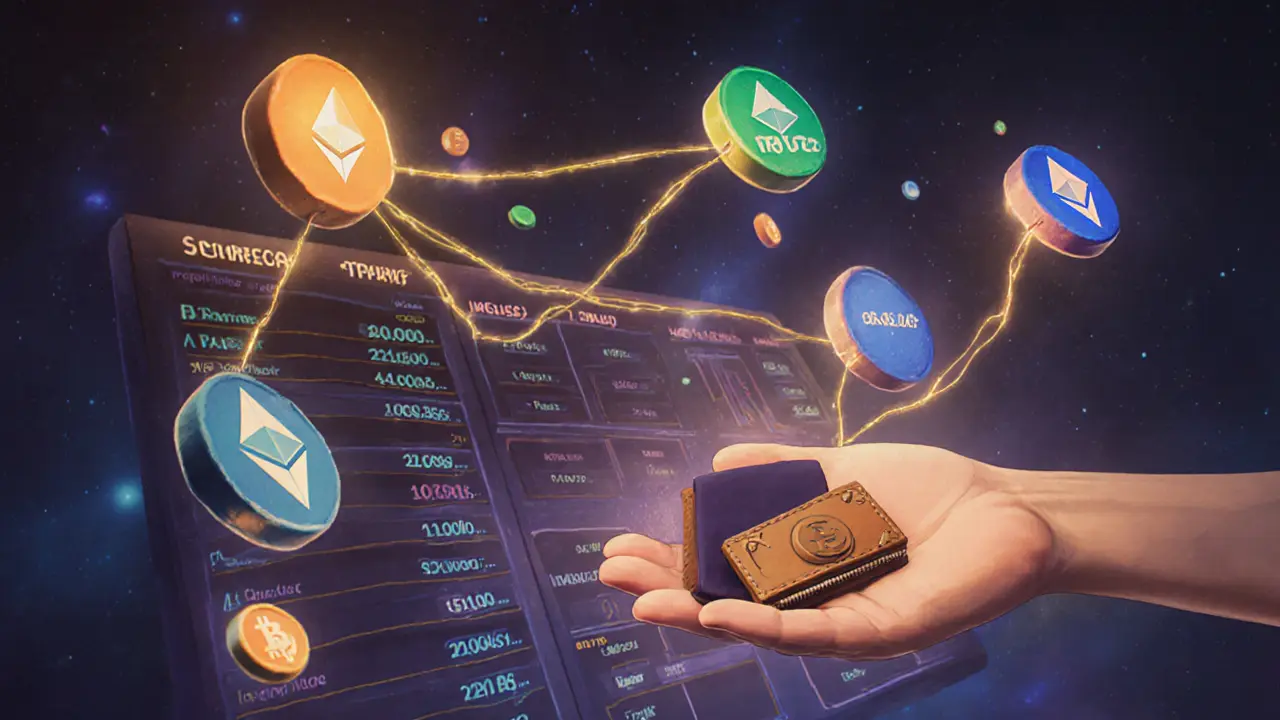On-Chain Order Book DEX: How Decentralized Exchanges Are Changing Crypto Trading
When you trade crypto on an on-chain order book DEX, a decentralized exchange that matches buy and sell orders directly on the blockchain using a traditional order book structure. Also known as order book DEX, it’s the opposite of automated market makers like Uniswap—no liquidity pools, no price curves, just direct peer-to-peer matching. This means prices aren’t generated by algorithms; they’re set by real traders placing bids and asks, just like on a stock exchange.
Unlike AMMs, where slippage and price impact can eat into your profits on large trades, an on-chain order book DEX shows you exactly who’s buying and selling at what price. This transparency reduces manipulation and gives you control over execution. It also means you can see depth—how much is available at each price level—something you rarely get on AMMs. This matters because it lets you plan trades better, avoid bad fills, and even spot large institutional orders moving in the background.
These systems rely on blockchain trading infrastructure to keep everything secure and trustless. Every order, fill, and cancellation is recorded on-chain, making it impossible for the platform to cheat or freeze funds. But there’s a trade-off: on-chain order books are slower and cost more in gas fees than AMMs. That’s why they’re not for everyone—they’re best for active traders who care about precision, not casual swap users.
Some projects like Seaport (used by OpenSea) and Radix have pushed this model further by combining order books with smart contract efficiency. Others, like DeversiFi and Bitget DEX, use layer-2 solutions to cut costs while keeping the order book structure. These aren’t just gimmicks—they’re responses to the limitations of AMMs in high-volume, low-slippage trading.
What you’ll find in this collection are real-world reviews of DEXs that use this model, breakdowns of how they handle liquidity, and warnings about platforms that claim to be order book DEXs but aren’t. You’ll also see how on-chain order books interact with other crypto concepts like decentralized exchange security, transaction finality, and trading volume metrics. Some posts expose fake DEXs pretending to offer order book features. Others show you how to spot real ones—and why it’s worth the extra gas fee when you’re trading more than a few hundred dollars.
Whether you’re tired of slippage on Uniswap, curious about how institutional traders operate, or just want to understand the alternatives to AMMs, this page gives you the facts—not the hype. You won’t find fluff here. Just what works, what doesn’t, and who’s really building something useful on-chain.
Clober Crypto Exchange Review: The Only Fully On-Chain Order Book DEX That Actually Works
Clober is the only fully on-chain order book DEX that offers zero slippage and no impermanent loss. See how it compares to Uniswap, gas costs, pros, cons, and whether it's worth using in 2025.
